Related Research Articles

The German Empire, also referred to as Imperial Germany, the Second Reich or simply Germany, was the period of the German Reich from the unification of Germany in 1871 until the November Revolution in 1918, when the German Reich changed its form of government from a monarchy to a republic.

Walther Rathenau was a German industrialist, writer and politician who served as foreign minister of Germany from February to June 1922.
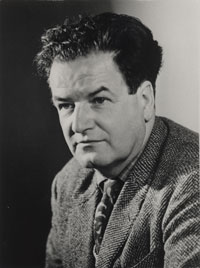
John Edward Christopher Hill was an English Marxist historian and academic, specialising in 17th-century English history. From 1965 to 1978 he was Master of Balliol College, Oxford.
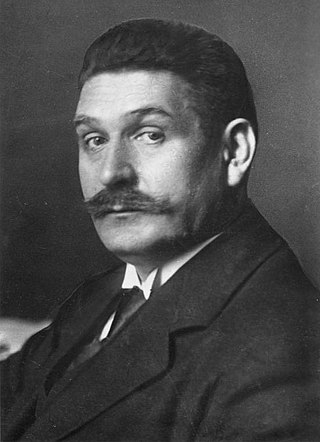
Gustav Adolf Bauer was a German Social Democratic Party leader and the chancellor of Germany from June 1919 to March 1920. Prior to that, he was minister of labour in the last cabinet of the German Empire and during most of the German Revolution that preceded the formal establishment of the Weimar Republic.
As a political term, social imperialism is the political ideology of people, parties, or nations that are, according to Soviet leader Vladimir Lenin, "socialist in words, imperialist in deeds". Some academics use this phrase to refer to governments that engage in imperialism meant to preserve the domestic social peace.
Fritz Fischer was a German historian best known for his analysis of the causes of World War I. In the early 1960s Fischer advanced the controversial thesis at the time that responsibility for the outbreak of the war rested solely on Imperial Germany. Fischer's anti-revisionist claims shocked the West German government and historical establishment, as it made Germany guilty for both world wars, challenging the national belief in Germany's innocence and converting its recent history into one of conquest and aggression.

Hans-Ulrich Wehler was a German left-liberal historian known for his role in promoting social history through the "Bielefeld School", and for his critical studies of 19th-century Germany.

Fritz Richard Stern was a German-born American historian of German history, Jewish history and historiography. He was a University Professor and a provost at New York's Columbia University. His work focused on the complex relationships between Germans and Jews in the 19th and 20th centuries and on the rise of National Socialism in Germany during the first half of the 20th century.
Robert John Weston Evans is a British historian, whose speciality is the post-medieval history of Central and Eastern Europe.
Peter Berglar was a German historian, professor of Modern and Contemporary History at the University of Cologne, and was known for his many publications. His biography of Thomas More is considered one of the best.

The revolutions of 1848, known in some countries as the springtime of the peoples or the springtime of nations, were a series of revolutions throughout Europe over the course of more than one year, from 1848 to 1849. It remains the most widespread revolutionary wave in European history to date.
Geoffrey Howard [Geoff] Eley is a British-born historian of Germany. He studied history at Balliol College, Oxford, and received his PhD from the University of Sussex in 1974. He has taught at the University of Michigan, Ann Arbor in the Department of History since 1979 and the Department of German Studies since 1997. He now serves as the Karl Pohrt Distinguished University Professor of Contemporary History at Michigan.

The Wilhelmine period or Wilhelmian era comprises the period of German history between 1890 and 1918, embracing the reign of Kaiser Wilhelm II in the German Empire from the resignation of Chancellor Otto von Bismarck until the end of World War I and Wilhelm's abdication during the November Revolution.
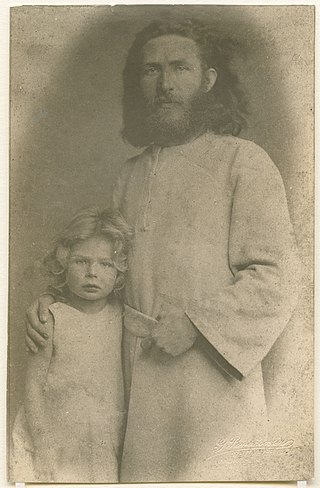
Karl Wilhelm Diefenbach was a German painter and social reformer.
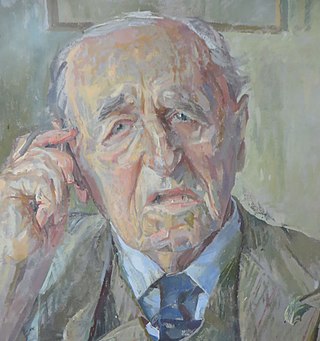
George Law Cawkwell was a classical scholar who specialised in the ancient history of Greece in the 4th century BC.
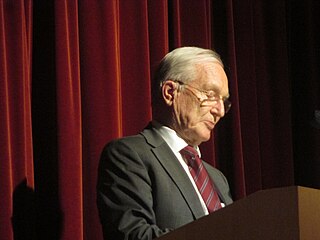
Lothar Gall was a German historian known as "one of German liberalism's primary historians". He was a professor of history at Goethe University Frankfurt from 1975 until his retirement in 2005. His biography of Otto von Bismarck has been translated into English, French, Italian, and Japanese.
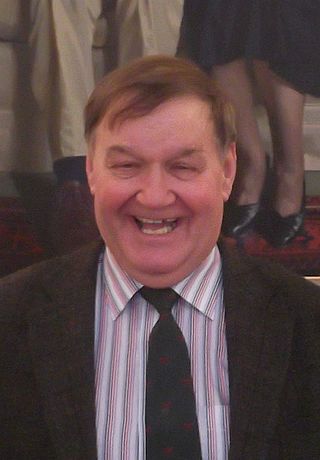
William George David Sykes was an English college fellow, Anglican priest, and book author.
The German Social Reform Party was a German Empire antisemitic political party active from 1894 to 1900. It was a merger between the German Reform Party (DRP) and the German Social Party (DSP).
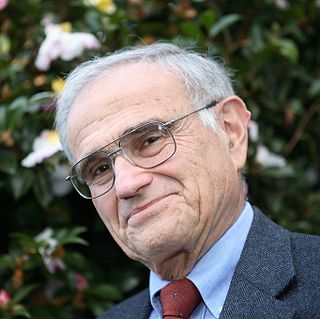
Michael Albert Meyer is a German-born American historian of modern Jewish history. He taught for over 50 years at the Hebrew Union College-Jewish Institute of Religion in Cincinnati, Ohio. He is currently the Adolph S. Ochs Emeritus Professor of Jewish History at that institution. He was one of the founders of the Association for Jewish Studies, and served as its president from 1978–80. He also served as International President of the Leo Baeck Institute from 1992–2013. He has published many books and articles, most notably on the history of German Jews, the origins and history of the Reform movement in Judaism, and Jewish people and faith confronting modernity. He is a three-time National Jewish Book Award winner.

The bibliography of Niall Ferguson, a Scottish historian based in the United States who is the Milbank Family Senior Fellow at the Hoover Institution at Stanford University and a Senior Faculty Fellow at the Belfer Center for Science and International Affairs at Harvard University. Previously, he was a professor at Harvard, the London School of Economics and New York University, a visiting professor at the UK New College of the Humanities, and a senior research fellow at Jesus College, Oxford, England.
References
- 1 2 Eley, Geoff; Retallack, James (2003). "Introduction". In Eley, Geoff; Retallack, James (eds.). Wilhelminism and its Legacies: German Modernities, Imperialism, and the Meanings of Reform, 1890-1930: Essays for Hartmut Pogge von Strandmann. New York and Oxford: Berghahn Books. p. 10.
- 1 2 3 Bewley, Tom; Jones, John, eds. (2005). The Balliol College Register (7th ed.). p. 433.
- ↑ "Recognition of Distinction". Oxford University Gazette. Vol. Supplement (2) to no. 4408. 22 July 1996. Archived from the original on 24 February 2018. Retrieved 25 November 2016.
- ↑ Univ Newsletter, no. 21 (Trinity term 2005), p. 2.